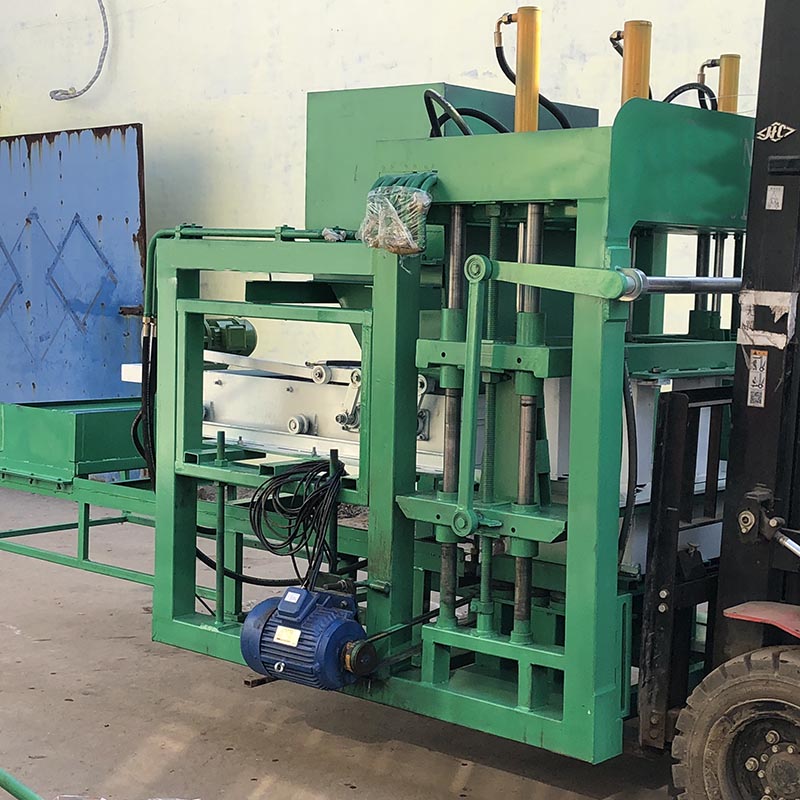
Image source:Aiwei block machine
Introduction
Brick making machines have emerged as a significant technological advancement in the construction industry, offering numerous benefits in terms of increased productivity, cost-effectiveness, and environmental sustainability. As these machines have the potential to revolutionize brick production, it is crucial to examine the role of government policies in promoting their use. Government policies play a vital role in shaping the adoption and diffusion of new technologies, and their strategic interventions can accelerate the uptake of brick making machines. This article aims to explore the various ways in which government policies can promote the use of brick making machines and facilitate their integration into the construction sector.
Providing Financial Incentives and Support
One of the most effective ways for governments to promote the use of brick making machines is by providing financial incentives and support to individuals, communities, and businesses involved in the construction industry. These incentives can take various forms, including tax breaks, subsidies, grants, low-interest loans, or favorable financing schemes. Such financial support can help offset the initial investment costs associated with purchasing brick making machines, making them more accessible to a wider range of stakeholders.
Governments can also establish dedicated funding programs or venture capital initiatives to encourage entrepreneurs and small-scale brick manufacturers to adopt the new technology. By providing financial resources, governments can facilitate the transition from traditional brick making methods to mechanized production, thereby fostering economic growth, job creation, and sustainable development within the construction sector.
Developing Regulatory Frameworks and Standards
Governments have a crucial role to play in developing regulatory frameworks and standards that govern the use of brick making machines. These frameworks ensure that the machines meet certain quality and safety standards, protecting the interests of both manufacturers and consumers. By establishing clear guidelines, governments can instill confidence in the technology and promote its widespread adoption.
Regulatory frameworks should address issues such as machine certification, safety protocols, environmental considerations, and operational standards. Governments can collaborate with industry experts, research institutions, and international organizations to develop comprehensive guidelines that balance technological advancements with social and environmental responsibilities. By creating a favorable regulatory environment, governments can remove barriers to entry, promote competition, and ensure the safe and responsible use of brick making machines.
Facilitating Research and Development
Government policies should also focus on facilitating research and development (R&D) activities related to brick making machines. By investing in R&D, governments can support innovation, drive technological advancements, and promote the development of more efficient and sustainable machines. Research institutions, universities, and industry partnerships can be encouraged through grants, funding, and collaborative initiatives.
Government-funded research can address critical issues such as machine efficiency, energy consumption, waste reduction, and environmental impact. R&D efforts can also explore new materials, designs, and manufacturing techniques that enhance the performance and affordability of brick making machines. By supporting innovation and knowledge creation, governments can foster a culture of continuous improvement and ensure that brick making machines remain at the forefront of technological progress.
Building Capacity and Skill Development
To fully realize the benefits of brick making machines, governments should invest in capacity building and skill development programs. These initiatives aim to equip individuals and communities with the necessary knowledge and expertise to operate and maintain the machines effectively. Technical training centers, vocational schools, and industry partnerships can be leveraged to provide comprehensive training programs that cover machine operation, maintenance, troubleshooting, and safety protocols.
Furthermore, governments can collaborate with industry associations and trade unions to develop certification programs that validate the skills and competencies of machine operators. By establishing recognized certifications, governments can enhance the professionalism and credibility of the brick making industry, ensuring that operators meet a certain level of proficiency.
Promoting Awareness and Knowledge Sharing
Government policies should emphasize the importance of promoting awareness and knowledge sharing about brick making machines. Governments can initiate public awareness campaigns, organize workshops, conferences, and seminars, and develop educational materials to inform stakeholders about the benefits and potential of these machines.
Furthermore, governments can facilitate knowledge sharing platforms, such as online forums, industry networks, and collaborative platforms, where stakeholders can exchange best practices, lessons learned, and success stories related to brick making machines. By creating a supportive and collaborative environment, governments can foster a culture of learning, innovation, and continuous improvement within the construction sector.
Encouraging Collaboration and Partnerships
Government policies should encourage collaboration and partnerships between different stakeholders involved in the adoption and use of brick making machines. Governments can act as facilitators, bringing together manufacturers, researchers, industry associations, financial institutions, and communities to create a collaborative ecosystem.
These collaborations can lead to the development of joint research projects, sharing of resources, knowledge transfer, and the establishment of industry standards. By fostering cooperation and partnerships, governments can harness the collective expertise and resources of various stakeholders, accelerating the adoption and diffusion of brick making machines.
Conclusion
Government policies play a crucial role in promoting the use of brick making machines and facilitating their integration into the construction sector. By providing financial incentives and support, developing regulatory frameworks, facilitating research and development, building capacity and skills, promoting awareness and knowledge sharing, and encouraging collaboration and partnerships, governments can create an enabling environment for the widespread adoption of these machines.
The strategic interventions by governments can not only drive economic growth and job creation but also contribute to environmental sustainability and technological advancements. By leveraging the power of policy, governments can shape the trajectory of the construction industry, promote sustainable practices, and enhance the overall efficiency and competitiveness of the sector. The adoption of brick making machines, facilitated by well-designed government policies, can lead to a more prosperous, sustainable, and technologically advanced future for the construction industry.
